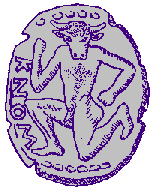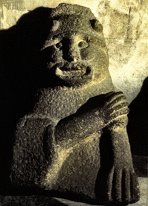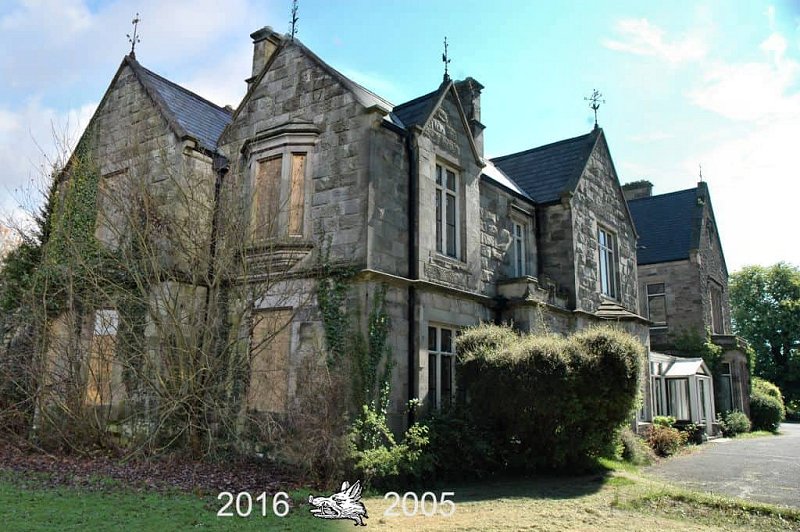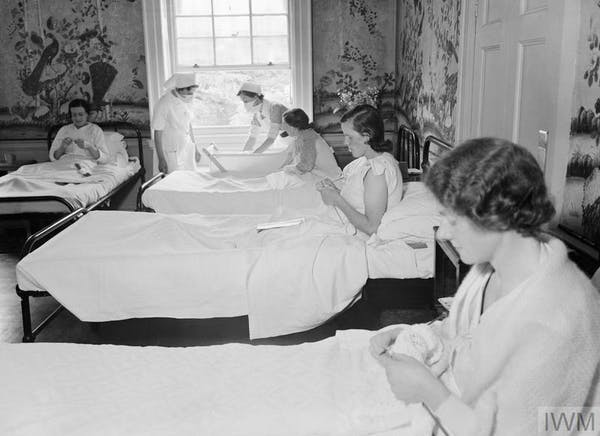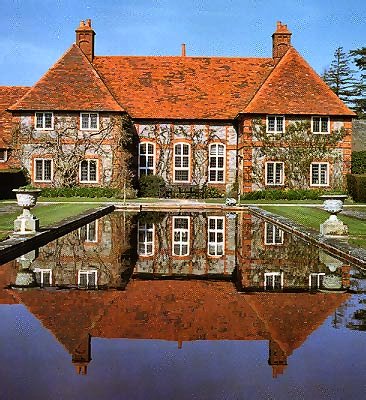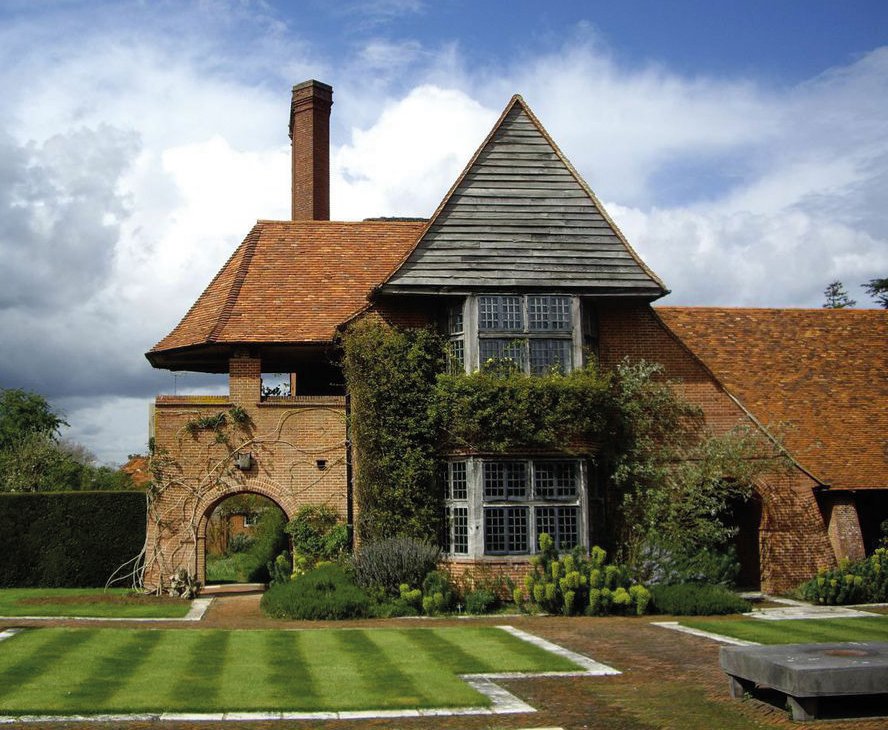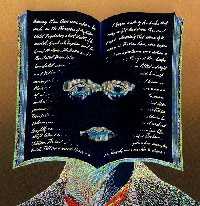ONE NOT ONE
too much poorly-written information
|
Dear Alter, Once upon a time, in olden days of yore before the world-wide web and zombi-phones, a young deodorised man in pastel-coloured clothes called Alan drove 60 miles through northern Irish counties Tyrone, Antrim and Down just to suck my over-sensitive and slow-to-squirt 50-year-old cock - which he did unusually well, as I noted in my diary. I also noted that he kissed as if he was unblocking a lavatory-pan. I remember nothing of this illegal activity (which could result in a gaol sentence) nor of most of my sexual encounters with men, which (and who) quickly merged with my memory-fog - in which initial good feelings are blotted out by later disappointment. I hope he thought that the 120 mile drive was worth it. He didn't stay for dinner, let alone bed and breakfast. I never heard from him again. Never in the invitationally-queer or cottage-cruising periods of my life did I think about policemen or being beaten up. I just acted on impulse. I sucked my thumb until I was about ten, but I didn't take naturally to cock-sucking. Indeeed the idea appalleed me until I was 40 years old. There have been several Alans in my life, most of them queer, one of them originally called Alim and very hairy. Álainn means 'handsome' in Irish. There was the famous Fr. Bénéteau of St-Eustache, formerly the Markets church in Paris, who was famous for being a torn-denim freak; and the human rights lawyer in Pisa who could only achieve orgasm if his balls were being beaten by an erect (or semi-erect) cock. There was a very sweet foot-fetishist in Amsterdam who gave my feet such pleasure that I nearly fainted. None of them was called Alan. Another once upon a time, once only, this time in London, a handsome hairy, bearded Turk pleaded with me to pass my suitably-small hand and half my scrawny arm through his arse-hole and up his rectum into his colon. This was another bizarre experience - especially for someone who likes neither arse-holes nor ungentle, unloving,m funless sodomy. I guess I felt sorry for him. Such is complaisance. Maybe my mother felt sorry for my hot, insistent father. It never struck me as particularly odd that I had no father. Middle-class fathers were not particularly in evidence at that time, but I did see the fathers of some of my playmates. Perhaps I understood from the beginning of rational consciousness that I was naturally 'different', but not in the way that young gay males describe it - more as described by people diagnosed to be 'on the autistic spectrum' or suffering from PTSD. Only
is not lonely. I had worn glasses since I was six. This and my natural low-testosteronal lack of desire to fight, hence my inability to defend myself. Preservation of my spectacles was much more important than retaliation.
The only good thing I remember about "Cabin Hill" were the masturbation parties that went on in the very private depths of rhododendron bushes, and the teacher who was very concerned about my welfare while he patiently waited for me to eat horrible, meaty school dinners, the eating of which was compulsory, long after the other boys hadd gone off to play or to 'play'. The poet Philip Larkin said that his childhood was a 'forgotten boredom'. I
remember very little about my childhood - just dramatic incidents
stabbing through the fog, sometimes brought to the surface by the
Proustian Madeleine effect.. Though, through seinile rumination,
it has cleared a lot recently, I am still living in a kind of fog.
I am not a high-achieving autist - on the contrary, mathematics
and strategy (as in chess) are quite beyond me. But I have or have
had many of the other symptoms of autism, including head-banging,
literalness, sudden tantrums of frustration, and an inability to
understand why other people do not share my interests. I have always
tended to withdraw into books. When other boys my age were turning
their attention towards girls, I was reading Dostoyevsky and listening
to Tchaikovsky and Sibelius. I was attracted to the mother of a
schoolfriend, and visited her eagerly and frequently for Lapsang
Souchong and conversation.Eventually I did find a girl-friend of
my own generation, but she in due course fled from my immature 'calf-love'.
After that, my interest in women reverted to the intellectual and
conversational. My propulsion into the cosmopolitan world of homosensuality was like being reborn. I met many men, visited a few of their homes, and invited several bearded people to my rural nest in Northern Ireland. I
started to wonder about my actual forebears and decided to obtain
my original birth certificate. So I was summoned to London - where
I went fairly often, since there were very few nen attractive to
me (i.e. mature, bearded and hairy) or attracted to me in either
part of Ireland. Despite her relief at being able to tell the truth at last, she still refused to give any information on my father. My mother was frank and honest only up to the barrier of his identity, if indeed she even knew it correctly. It turned out that she had been impregnated in her first and only "sexual congress" – at the age of 36 – during a New Year's Eve party given by a squadron of the RAF in Belfast at the beginning of the second world war. She was a primary schoolteacher in her early thirties, at Dundonald primary school outside Belfast, where her father had been Principal - as well as a dignitary in Order of Freemasons - and which I eventually attended. She never saw her impregnator again. She did not even know she was pregnant until about the 4th month. It was 1941. Travel between Northern Ireland and other parts of the English "United Kingdom" was tightly restricted. But Mattie, having tried abortifacients and tumbling downstairs, having tried suicide by swimming towards the Isle of Man - and swimming back again - through her mother's connections with the medical profession (she had been a midwife), got a pass to go to England for unspecified 'medical reasons'. There, in a beautiful but shameful manor-house in Wokingham (Berkshire), she gave birth to me, fully intending to have me adopted. Amongst her family and friends, only her own mother knew the situation. In the fulness of time, however, I was possibly the only person fooled by the adoption. After
I was born, she found that she simply couldn't send me off for
adoption. Had I been a girl, my history might have been quite different. Had she been 'taken advantage of' in France, she might have been reduced to using a Baby-hatch. She brought me to Belfast in 1942, where I was nurtured mainly by her mother and her sister, until she was demobilised in 1945. Despite being forced to become at least partially right-handed, I think I was quite a happy and a thoughtful child - until interfering males (mainly my Empire Loyalist uncle who was a doctor, and my scheduled role-model) advised my mother to send me to the preparatory school mentioned above, and then the very poor-quality Public School (which referred to itself, risibly, as The Eton of Ulster), to remove any 'effeminacy' incurred through an upbringing by 'mere women'. Before my eightieth year I hadn't thought about the missing period between my birth and my adoption and subsequent residence in Belfast. Most of my past is occluded – a blank with foggy bits, so it never occurred to me to wonder. Maybe I have always lived too much in the present. I reckon there is no way to find out. The curious thing is how incurious I have always been about my unremembered early life, especially that missing year. Where was I ? How was I looked after ? Has it anything to do with my mild phobia of make-up, especially bright-red lips (and clowns), lots of teeth, big eyes and breasts ? I asked Mattie only twice about my father. The first time, I was maybe 10 years old, and was easily fobbed off and diverted. She mumbled (or I have jumbled) the name Gordon, which was (I have since found) not attached to my father, but may have been the name of the family who looked after me for the 'blank' first year of my life. The second time was just after happily declaring myself, to all and sundry, almost at the age of forty, an enthusiastic beginner and eager experimenter in 'alternative sexuality'. She was only a little more forthcoming this second time, but I gathered that she 'was taken advantage of' at a New Year's Eve party at Crawfordsburn Country Club, outside Belfast, at the end of 1940. In my teens the three of us often went for Sunday lunch at the 17th century Crawfordsburn Inn, very close to where I was engendered. "I
was bored and miserable after my wonderful year in Canada. There
were no entertainments, there was the black-out - and when I met
some RAF officers whom I found glamorous, resting between "ops",
I was delighted. I went to dances and parties, and eventually became
infatuated with one particular pilot - tall, handsome, fun-loving,
extravert (longish, narrow face, like yours), bright eyes, always
bubbly and with a Mephistophelian cast of countenance, really. I
offered no resistance because I was simply curious. Although I was
32 I didn't know what "it" was all about. I was totally
naive.
I was born in mid-September. Did this man leave for 'The Middle East' in January or in May ? More likely in May. The squadron included a pilot from Canada and another from the USA. Others joined it from the Royal Belgian Air Force. He imbued me with very few of his genes - except (possibly) a tendency to rebelliousness. Certainly not his deviousness. I look very like my mother, though with a longer face, and could even (at a pinch) fit into her upper garments after I had fully grown. I had the distinctive mannerism of my grandmother which was a tendency to walk with my hands behind my back. I also shared my mother's spathulate, stumpy thumbs and broad feet. But these familial similarities did not penetrate the fog of my consciousness, which is still thinly present in my eightieth year. Mattie's wonderful year in Canada was as an exchange teacher in Winnipeg, where she lived with one of the many cousins of her Ulster Protestant family. They were also in New Brunswick and Vancouver. Being protestant and middle-class, with a mother who had been a midwife, and a brother who had 'joined up' as a doctor in the Navy, my mother was spared the appalling fate of Irish catholic mother-and-baby homes about which we now know so much. It was not so difficult to wangle her a wartime passage to England during the summer holiday when she was belatedly starting to show her increase in girth. She was extremely lucky that the wartime government had taken over lovely (if draughty) homes in the countryside for city women to give birth in. The WAAF, where she made friends easily, was infinitely more enjoyable than a Magdalen Laundry, and I was, presumably, not starved or abused, but well looked after in that lost year. Who looked after me, and where ? I never thought of asking. In the prelude to war in 1938-1939, the UK government needed to to ensure that there were resources in the cities to care for war casualties over and above existing medical demand. The result was the establishment of the Emergency Medical Service and within it, the Emergency Maternity Service. Maternity homes, hospitals and large properties in rural areas were commandeered to create a network of emergency maternity hospitals and later, hostels. Women in their final four weeks of pregnancy were strongly advised to evacuate from high-risk cities to billets near to these hospitals to await the arrival of their baby. On September 2, 1939, over 12,000 pregnant women left their city homes to wait out the final weeks of their pregnancy in the countryside.
I was also unaware of the Catholic-Protestant divide until I was at least eight. Our next-door neighbours in middle-class East Belfast were, it seems to me, happy catholics. The religious difference intrigued me. Soon after entering a catholic church for the first time I set up an altar with candles in a cupboard in my bedroom...and set the house on fire. Where I was born in 1941 - a wartime Maternity Hostel.
Folly
Farm But
where did I go after this ? My mother at one point mumbled something
about a Mrs Gordon. Obviously, someone looked after me and bottle-fed
me, unless she was a wet-nurse. Did that 'missing year' cost a lot
of money ? Why did I not wonder about it until I was eighty ? In 2022, when I was 81, I finally took a DNA test with a very commercial and pushy American trans-national business called ancestry.com. Until I finally, the foggy child, discovered that my look-alike Guardian was actually my mother, I referred to her by her first name, Mattie (Martha) or, 'My Aunt'. Most people who saw us together after my mid-teens must have realised the situation, but nobody let on to me. A significant part of the fog was Mattie's other sister, Elizabeth, who lived nearby and filled the house with antagonism when she visited the house, which she did every day that my grandmother was alive. She was happily and respectably married, with two children slightly older and slightly younger than me, who were brought up to pity - perhaps to deride - me for my ineptitude at mechanical things, numbers and suitably-boyish construction. Our house of three women and a slightly-strange child, had just one screwdriver, no pliers, one small hammer...and I had, many years later, to teach myself about electrical gadgets and, eventually, to operate an electric drill. My grandmother, the midwife, could not abide left-handedness. When I went to pre-school I had left-handedness knocked out of me by a stick or ruler over the knuckles. I am still left-footed and my left arm is more powerful than my right. I wear a watch on the 'wrong' wrist. Being left-footed is a further handicap when you are bad at games which involve kicking an inane (but not harmless) ball in a cold, muddy field with a lot of boys you are very wary of. When I reached 80, I realised that I had acquired Autism Spectrum Disorder, which mostly subsided after I left school, but which has returned in my senescence and caused me some grief. So after the 'missing year' I existed in a time of miasma, from which I started to emerge only in my seventies. This 'mist of unawareness' of the currents and world around me kept me from asking questions. My only survival technique was books. I learned to read when I was four, thereafter I have lived through books. The only people I have felt connection with since my 'teens are those who have read - or exchange - the same books : my mother, and Malcolm, my intimate, handsome and bearded (but not cohabiting) friend for 30 years.
Like myself, Mattie often felt 'out of her depth' at the strange social gatherings of adults called 'parties'. Even in her fifties she looked a little unprotected at New Year's Eve parties. It has only occurred to me while writing this that she must on those occasions have remembered the fateful one which blighted her life. But later in life her unprotectedness stood her in good stead. She frequently and sturdily travelled alone and was often befriended by totally-honourable locals - in Prague, Warsaw, Lake Balaton in Hungary, Amman, the Trans-Siberian Express, Hong-Kong, Singapore...and on Cyprus, who enjoyed her eager innocence - no, naivety. This quality is not valued in men, as I found out. Both men and women find it baffling. Men are expected to be sentimental (to use Schiller's distinction), rather than naive. 'It never struck me as particularly odd that I had no father. Middle-class fathers were not particularly in evidence at that time, but I did see the fathers of some of my playmates. Perhaps I understood from the beginning of rational consciousness that I was naturally 'different', but not in the way that young gay males describe it.' I was more interested in what was betweern the legs of my female playmates than what my male friends were quite happy to present for my inspection. I didn't feel that I was a changeling for more than half an hour. I just knew, without any regret, that my life was different to those of my contemporaries. They had fathers and mothers from the time of their births, while my mother featured very little in my life before she was demobilised from the WAAF in 1945, when I was four. She had joined up (I guess) as soon as possible after giving birth to me in a mysterious but beautiful and posh establishment in Berkshire, to which she had to go after various ineffective attempts at abortion. A primary-schoolteacher in Northern Ireland could not possibly have an illegitimate child. She had intended to give me up for adoption, but that in the end she couldn't do it. And so she joined the WAAF as a maintainer of barrage-balloons and dogsbody meteorologist so that she could visit me on her time off during the mysterious year between her giving birth and adopting me. Later she told me about cloud-types and air-streams, and I look at satellite weather-maps every day. My love of books and stories may well be related to my complete lack of imagination. I was never afraid of the dark, of snakes, spiders, monsters...only male teachers and authority-figures, and of course many of my male peers. I have never been able to fantasise sexually or in any other way. I could not write two lines of dialogue or write a novel. I am extremely bad at lying - and at detecting lies. Yet I wanted to be a writer! I am in awe of those few novelists who not only do considerable research for their books, but also write with style. It must be significant that my earliest memory is standing up in the bath to be dried by my sweet, gentle and patronised aunt Marcella who was mother to me for around 3 years, with her mother always in the background, often in the kitchen baking. I pointed to my stiff little cock and asked her what it was called. Willy, she told me. End of conversation. Was this an innocent question - in which case why do I remember it ? Or had I already picked up on the genital taboo that pervades and corrupts all civilisation ? Was I innocently taunting her, the put-upon, unbeautiful (except to me) sister who worked in an office all day at a clerical job she hated ? My next memory is of riding my tricycle. I rode it into the centre of Belfast, and was brought back by members of the now-reviled RUC, who were always kind to protestants, especially blond-haired protestant children who 'spoke nicely'. Then come - around the age of four, I suppose, my memories of interest in what little girls didn't have between their legs. I loved climbing trees below one particular 'tom-boy' girl (whose name I forget, though I remember the tree rather well) and pulling her pants down. She thought it naughty fun, too. But another little girl suffered badly from my predilection. We had agreed to show each other our private parts, and sworn not to tell any adult. Not only did we show each other what was between our legs, but we also explored each other tentatively. As I should have expected, Brenda told her mother. (I have never been able to 'read' people.) Her mother went hot-foot to my grandmother, and I was caned. Immediately after my punishment I went straight to the kitchen drawer, removed a knife, went and found Brenda and slashed her big mouth in a truly reprehensible (not to say Biblical and Freudian) act. She had to get several stitches, poor girl, for her betrayal of trust. My interest in other boys' willies came later, after I went to primary school - where my mother taught the five-year-olds. I guess it coincided with collecting frog-spawn and discovering newts and sticklebacks with boys I found attractive but was not encouraged to befriend. Probably the only physical prowess (aged 5) of my whole life, was at pissing right over the two-metre high, delightfully-smelly, algæ-green outside-toilet walls at the far end of the school playground. This alternated with my reprehensible joy at chasing the little girls into their (adjoining) toilet area and, if possible, lifting up their little skirts. I was an unholy terror, but because the school was where Mattie taught, I don't remember being punished or even chastised. Today I would be delivered into the clutches of 'Social Services' and forced to receive 'guidance' rather earlier than I in fact was. My later visits to the ridiculous Child Guidance Clinic were forced on me by the 'elite' boys-only school that I hated (but where my mother had been encouraged or bullied into spending on sending me) because of my outbursts of mis-directed rage which inevitably followed taunting by my peers. They worked out very quickly that I could be teased beyond a point of endurance when I would lash out, literally blinded by what I now realise was probably a sudden excess of cortisol.
When bad weather descended, we were forced to do cross-country runs instead. I have always hated compulsory exercise. exercise for exercise's sake. I have always been lithe, yet tired easily, even on walks through the woods with Mattie. And I am still the same weight that I was at the age of eighteen. The patriarchal forces working on my mother encouraged her to spend more of her modest income on making me a boarder at the tight-lipped institution for continuing mental mutilation (just two miles from my home) in a final attempt to 'rub the corners off' a square peg in a round hole. My reaction to this was, first, to 'borrow' day-boys' motor-bikes during my 'study periods' and charge my batteries of resistance by going 'for a spin', a 'joy-ride' - in my school uniform and without a helmet. I kept to minor roads, and favoured the Craigantlet Hill Climb just beyond the school grounds, which was an international race in the 1950s. And so I learned to ride a motor-bike, with very little damage done to the machines I 'commandeered'. In the 1950s motor-bikes did not have locks or ignitions: one just kick-started them and rode off - which was my most serious problem, since I am left-footed and have never been able to kick-start a bike with my right foot. Twenty-five years later I would be the proud owner of a shaft-propelled Honda CX-500 which had an ignition and self-starter. I could never have held it to the left of me in order to kick the start-lever, as I had to do with smaller bikes. Strangely, I was never made to answer for my near-suicidal escapades. There was a strange conspiracy of silence. Not even my mother mentioned it - and I had entirely forgotten about it until I started writing this page. My second act of rebellion was to run away to France. This, however, was nipped in the bud when I slipped home in the middle of the night to collect my passport - and woke up my mother. I had just enough money for the boat to Liverpool, and hoped that on docking there I could hitch-hike and depend on the kindness of strangers. Every psycho-doctor that I was ever sent to was, I now realise, was himself in considerable need of help to 'loosen up'. There was no way that any of them could help me, now (at eight years old) with added stammer which ridiculous Elocution Lessons could not help. I was much caned between the ages of eight and eighteen. More than enough to make me, within my miasma, dumbly resent all authority. But at home, despite the currents swirling around my behaviour, I never felt unloved or unappreciated. Despite the Ulster Protestant lack of touchy-feeliness (kissing was peremptory)I have always felt loved, and so I have never sought love to fill a hole or a want. What I looked for in others - children and adults - was inspiring companionability...which is probably harder to find than love. For most of my life I have had to inspire myself, which has proved useful in my emotionally self-sufficient 'old age'. With Malcolm, who also has a 'low sex-drive', I have enjoyed quiet companionability, sharing a love of beards, reading the same books, listening to the same radio programmes, watching films together: frank and fraternal intimacy. What I also had from my "aunts" was reliability - an under-estimated virtue. They could be relied upon. They taught me to be reliable. There have been very few times in my life when I failed to do as I promised, and on those occasions simple fatigue - more physical than moral - was the reason. They also said what they thought, though not necessarily at the moment when they thought it. This led me to believe - for most of my life - what other people said. It would seem that I did not suffer from rejection in that first year. My foster-mother, too, Mrs Gordon (?) was probably a good person, whom I never had the opportunity to thank had it even entered my mind. Assuming that she lived not far from where I was born, my mother would have hitch-hiked from an air base in East Anglia to see me when she had leave, so she could monitor my condition and progress. Had she anything to do with the Gorham family of Newmarket whom she visited regularly after the war ? Mattie had trained as a schoolteacher in what was then a new-fangled teachers' training college. In the school year 1938-9 she had the opportunity to teach in Canada, and she stayed with her cousins in Winnipeg. She adored Canada. She wanted to stay there, but in September 1939 the Second World War was declared, and she felt obliged to return to Belfast. This is bizarre, but it was a normal reaction at the time - even though Belfast would be bombed, not Winnipeg. Similarly her sister, who had been enjoying herself chastely in London, was prevailed upon to return from the vulnerable capital to her mother and her sister. For the rest of her life she regretted her decision. She hated the job she had to take in a dismal telephone accounts office of the government department of posts and telegraphs, she missed her jolly friends (a pair of whom I discovered to be lesbian after I myself merrily "came out". My strait-laced, macho and work-ethical uncle, who had just graduated in medicine, joined up as a naval lieutenant and had a fulfiling war. Men to adventure, women to drudgery...but my mother definitely enjoyed her war, and for several years afterwards visited friends she had made there. Her final journey to where I was being fostered was to take me, now that I was formally adopted, from somewhere to Belfast on a long, grimy, dismal trip by steam-train and boat. Having secured a cabin for both of us, she had her first experience of undressing a one-year-old placed on the top bunk. As the boat rolled, I fell on my head to the floor. She must have wondered often if this was the cause of my 'waywardness'. More than once she wailed (as many parents have done) "What did I do wrong ?" The answer should surely have been as obvious to her as it later was to me. I have a very hard head. I used to turn over in bed and bang my forehead against the back of my hands to relieve stress. I have done this even quite recently. But it is possible that from that drop I became separated from other people's experience in my private mist, often unaware of what was going on in the society around me. I didn't even realise that I was "a drop-out", didn't even know the term. I was surprised when someone sometime in the 1980s called me a proto-hippy hermit. During the war, at least one of my mother's Canadian cousins passed through Belfast. Food parcels came from Manitoba. The Canadian Rutherfords (cousins of my grandmother) featured quite a bit in my early life. I even had some other young scion of the tribe (living in St John, New Brunswick) as a pen-pal for a while. But, because I was embedded in my misty mind, we had nothing to share. My grandmother and her various sisters in Ulster and in Canada, all very homely and ample women, all married dull, narrow-minded, mean men. It was only because her Masonic Grand Master husband had recently died that my grandmother was able to accept me into the household after the 'missing year'. In fact, his death, it now occurs to me, might have changed my mother's decision to have 'her wee bastard' adopted by someone else. Her refusal to acknowledge me as her son denied me a free education at the Masonic School for boys in Dublin, which by all accounts would have been rather more congenial and mind-enlarging than the degenerate Campbell College, Belfast, with its septuagenarian and/or incompetent, reactionary teachers, only a couple of whom (by far the best) had received any training in the difficult art of imparting knowledge and enthusiasm to children (like myself) who loved learning things. The only good, trained teachers I had in my 10 years at this snooty, sporty and militarist establishment taught English, French and Biology - the subjects I excelled at, but could not combine. Incompetent teachers do as much damage as 'child-molesters'. They are the unnatural enemies of their pupils. The low-level but long-lasting unpleasantness that I encountered there obliterated the residue of my manic, 'precocious' playful sexual phase, which I was unable to convert to team-sport. It started to fade as I started reading more and more. It has never really returned. Apart from a few sexual encounters in the bushes of the extensive grounds of the oppressive school, I had no sexual interest in girls or boys until I was 20. Then I got a summer job in Denmark and was in friendly contact with several girls around my age, all of them attractive in one way or another. I didn't have to seek them out; they were friends and co-workers. When I cruised men, what I wanted was not 'sex', but childish, naughty, brotherly fun with someone beautiful, preferably darker than me. My unconscious desire for an older brother (or sister ?)has, needless to say, never been fulfilled. You could say that my sexuality has never left the infantile and anthropological phase. Moreover, my ludic appetite has been best satisfied - non-sexually - by dogs. Dogs are fun. Dogs aren't wounded by careless words They enjoy silliness. You can sing silly songs to them. You can chase them round the house. You can stroke their ears and rub their bellies at any time. They will always let you know when they want some attention. They are not only 'uncomplicated' but honestly appreciative. Dogs can also be vegetarian if you give them a low-carbohydrate diet with eggs. Adults don't like other adults to be 'childish' except 'on stage' - and so we old, serious children have few or no true friends. My last early vivid memory is of my happy wonder at seeing a picture of a black face. There were, of course, no people of colour in Belfast in the 1940s, but there were books featuring Little Black Sambo and Epaminondas with whom I fell in love. Since then I have disliked my skin colour. My timidity later on in school showers was only partly due to shame at my 'weediness', the other part was regret at my paleness. Why this should be, I don't know. Perhaps I somehow knew that people of colour were oppressed, and immediately identified with them. I made a parallel identification with ogres, whom I thought much more exciting than princesses. Thus, from the age of four, I had a different outlook on life from other children - an 'attitude' which was suppressed and repressed for the ten years that my brain was subsumed by the grotesque schooling that passed for 'top class education', such as my talented and dull, docile cousins would have thrived under - but did not receive. My repressed misery at the posh boys' school made me consider suicide from the age of nine or ten. But the only action I took was to stand out on the shed-roof below my bedroom window on cold wet winter nights, in the hope that I might get terminal pneumonia or TB. A symptom of this misery (presumably) was my tendency to turn over in my sleep and bang my head on yjr backs of my hands while tunefully moaning the same four-note theme (which is the skeleton, so to speak, or embryo, of many great themes in European classical music which captivated ne as much as books). This distressed my aunt, but nobody seems to have realised that this was a reaction to stress and a call for help. I would do the same today if I were sufficiently stressed; but since I resolved on leaving school that I would never again allow myself to be subjected to stress, I have rarely resorted to it. This I count as great success : I resisted the certain defeat that is encapsulated in the phrase If you can't beat them, join them. I would amend that corrupting adage with If you can't beat them, laugh at them. View life as a joke in poor taste. An ironic sense of humour is the most valuable of qualities But (inevitably ?) there was the sheet of thin glass or membrane of stretched cling-film between myself and others. In the many moments of 'very good sex' I have had with many different men, I persuaded myself (to my emotional cost) that it disappeared. I feel more distinct from my 'fellow-man' than I do from the entirely different canine species. And of course, at the end of my 'teens I too loved Hesse's Steppenwolf. I don't think that I reached emotional puberty until I was forty. Not even when I went to prison for three months at the age of thirty-two. Sometimes I think that I am living my life backwards, and that now I am in a favoured and precocious, presumptuous childhood, even though I have thought about suicide since I was ten or even earlier. It is easy to be a hermit if you have always lived on your own, have never worn (since I left school) a tie or jeans or Doc Martens or 'trainers'or a business suit, have almost never gone to dances or parties (or pubs, except to look for a pal), have never been part of 'pop culture', owned a television (or a microwave), bought a mortgage, life insurance, smartphone or almost anything new. My generation – the one before the Baby-Boomers – was very subdued. Even the one or two 'bad boys' to whom I was attracted before I was discouraged to do so, would not raise an eyebrow nowadays. I liked them precisely because they weren't boring, and, unlike some of the respectable kids, they didn't bully me. We took each other as we found each other. The society of the 1940s and 1950s was very safe for conformers: colourless, law-abiding, stultifying - and apathetic. This was the heyday of locking people up for having quite reasonable emotional crises and 'illegitimate' children, many of whom were packed off to The Dominions as unpaid child labour. I was very lucky that my respectable 'adoption' afforded me considerable protection. Had I been a working-class child, my errant behaviour might well have earned me a place in some kind of 'reform' establishment for the maladjusted. This is what happened to my long-term ex-lover companion-in-fondness, a quiet, introverted boy who was labelled 'difficult' because of what would now be described as mildly autistic behaviour. At different times (he is twenty years younger) the same type of insane psychiatrist declared us both 'schizoid', one of many meaningless and obscurantist psychological labels, of which schizophrenic was the most outrageous - and ubiquitous. When I was a teenager, my 'deviant' peers were prescribed electric shock therapy for 'sexual perversions' such as nightly masturbation. Being a relatively 'undersexed' hovering bisexual for most of my life, this was not one of my practices. Interestingly, my lack of interest in going to pubs or dances 'to meet girls' was never commented on. I was not remotely aroused by any part of a female body, and not all that much by other men's cocks. I have rarely had erotic dreams of either kind, and no nocturnal emissions. Sexual activity came later in the nineteen-fifties - unless, like me, you had reduced its urgency by precocious and promiscuous exploration during childhood. I have never 'visited' a prostitute nor 'had recourse' to financially-agreed intercourse.I never even considered it. It was women's personalities which interested me, not their pale bodies. I have never understood the attraction of white legs, breasts or make-up. But when I was in a hotel in downtown Bangui (Central African Republic, then ruled by Jean-Bedel Bokassa), a beautiful, unpainted, small-breasted chambermaid came to my room and hesitantly offered herself to me (naming no price) under the ancient, rattling air-conditioner. If I had been raised in Africa, or even Southern Europe,I might never have ended up attracted almost entirely to bearded men, because unpainted, small-breasted, dark-hued women still take my breath away with their beauty and sometimes cause twitches in my groin. The Gbaya
chambermaid was somewhat disturbed by my request for her to sit
on me and receive my willy slowly, from below, while we massaged
each other's nipples gently. It was – she was – beautiful
for and to me. Between
this last heterosexual encounter and my first and only heterosexual
love affair I had just one brief fling - with a very sweet woman
who gave me a lift in my hitch-hiking days -which lasted until my
late forties. The 'sex' was 'quite nice' (as it has subsequently
been with many men) but it was lacking both in lust and in love.
It was sort-of-suburban, really. The fling did not last long.
absolutely true ! The day after writing the above, I received a message from a man over ten years younger than I, from four départements (over 400 km) to the north-east of Rouergue where I now live fairly happily and asexually, informing me that he would love to suck my cock ! Although (of course) I have no memory of him, this guy had contacted me over ten years previously but had not fulfilled his promise to visit. This time I declined his kind offer. Solitude is not misery. In a later message he told me that he had only recently discovered masturbation (in his sixties !) What sort of fog has he been living in ? Perhaps mine is a mere fairy mist... |
"One can tell any story except one's own." - Max Frisch
This one is disjointed and repetitive.

